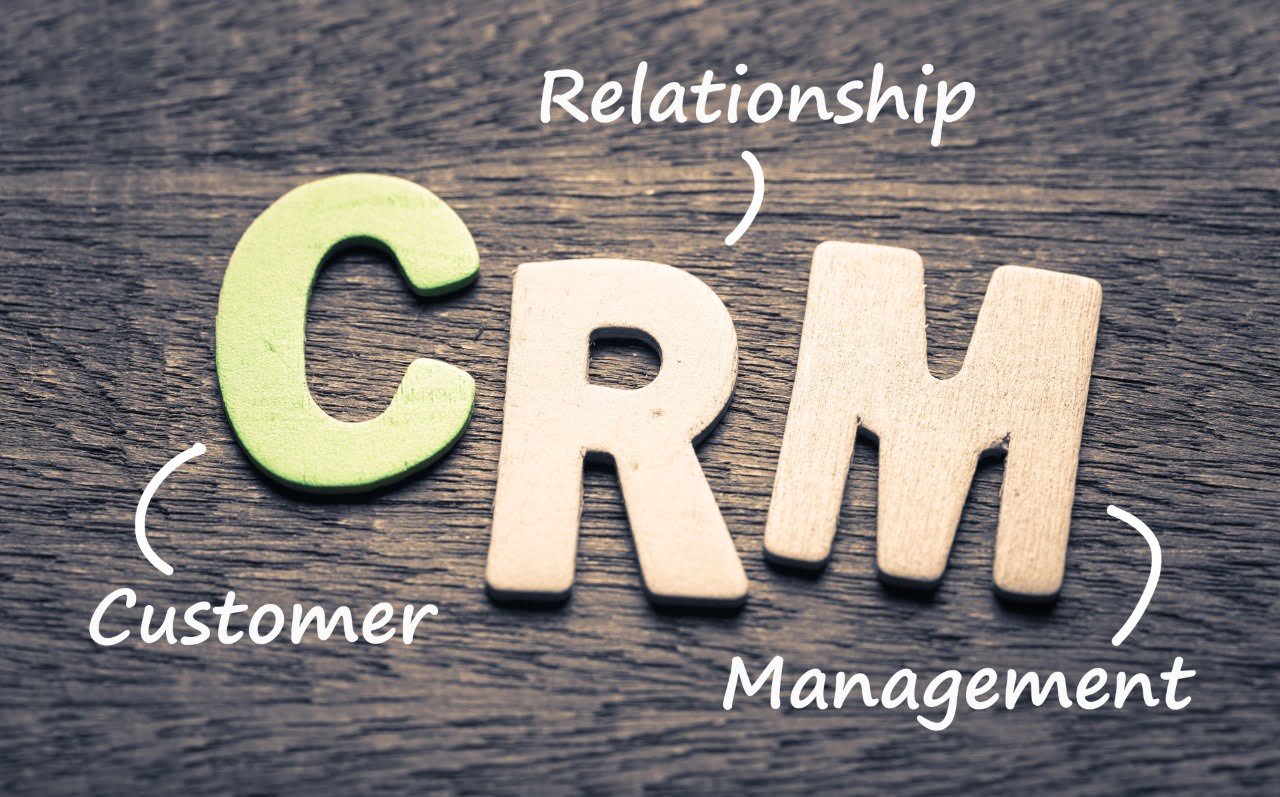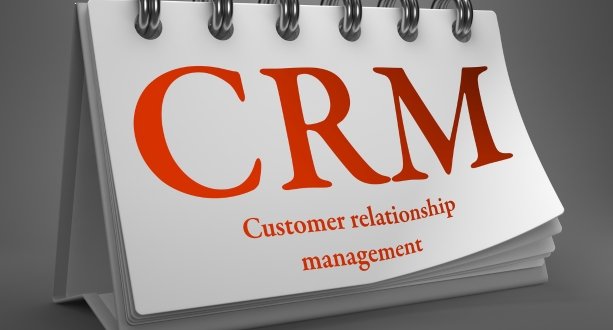HubSpot CRM is a powerful and comprehensive customer relationship management (CRM) platform that enables businesses to efficiently manage their sales, marketing, and customer service activities. Founded in 2006 by Brian Halligan and Dharmesh Shah, HubSpot is a well-established software company renowned for its inbound marketing methodology, which focuses on attracting, engaging, and delighting customers rather than traditional outbound approaches.
At its core, HubSpot CRM serves as a central hub for businesses to store, organize, and analyze customer data. The platform is cloud-based, meaning users can access it from anywhere with an internet connection. It offers a user-friendly interface and integrates seamlessly with other HubSpot products and various third-party applications, creating a unified ecosystem that streamlines sales and marketing operations.
One of the main strengths of HubSpot CRM is its ease of use. Even for those new to CRM systems, HubSpot provides a simple onboarding process with intuitive navigation, allowing businesses to quickly adapt and leverage the platform’s capabilities. This accessibility has made it a popular choice for startups, small businesses, and large enterprises alike.
The CRM offers various features designed to enhance sales productivity. These include contact management, where all customer interactions and information are consolidated in one place, making it easy for sales representatives to track and manage leads throughout the entire sales funnel. Users can also create customizable deal stages, set reminders for follow-ups, and automate repetitive tasks, enabling sales teams to focus on building relationships and closing deals.
Furthermore, HubSpot CRM provides powerful marketing automation tools. Users can design, schedule, and track email marketing campaigns to nurture leads and engage with customers effectively. The platform also offers lead capture forms and pop-ups for websites, facilitating the conversion of website visitors into leads.
A key aspect of HubSpot CRM’s effectiveness lies in its comprehensive reporting and analytics capabilities. The platform generates real-time performance reports, providing valuable insights into sales and marketing efforts. Users can monitor key performance indicators (KPIs), track customer behavior, and analyze campaign results, enabling data-driven decision-making and continuous improvement.
Additionally, HubSpot CRM facilitates seamless collaboration among teams. With the ability to assign tasks, share documents, and communicate within the platform, sales, marketing, and customer service departments can work together cohesively and align their efforts towards a common goal of delivering exceptional customer experiences.
Moreover, the CRM’s integration with the HubSpot Growth Platform offers a vast array of additional tools and functionalities. This includes the Marketing Hub, Sales Hub, Service Hub, and CMS Hub, each tailored to meet specific business needs. The interconnected nature of these hubs fosters an all-encompassing approach to customer engagement, ensuring a seamless journey for prospects and customers across various touchpoints.
The CRM’s adaptability is further enhanced by the HubSpot App Marketplace, which offers a wide range of third-party integrations. From popular productivity tools like Microsoft Office 365 and Google Workspace to customer support solutions like Zendesk and live chat services, businesses can customize their CRM to suit their unique requirements and industry-specific demands.
Security and data privacy are paramount concerns in any CRM system, and HubSpot takes these matters seriously. The platform complies with international data protection standards and employs robust security measures to safeguard customer data from unauthorized access or breaches.
Different types of HubSpot
HubSpot is a comprehensive platform that offers a wide range of tools to help businesses attract, engage, and delight their customers. Since its inception, HubSpot has evolved to cater to various aspects of inbound marketing, sales, and customer service. In this article, we will explore the different types of HubSpot products and their respective functionalities.
HubSpot Marketing Hub:
The HubSpot Marketing Hub is the core product of the platform and focuses on inbound marketing strategies. It provides tools to attract, convert, and engage potential customers. Some of the key features include:
- Content Management System (CMS): HubSpot’s CMS allows users to create and manage their websites with ease. It offers a drag-and-drop interface, enabling marketers to build and optimize web pages without the need for technical expertise.
- Email Marketing: The Marketing Hub allows businesses to create and send personalized email campaigns to nurture leads and stay connected with their audience. The platform provides analytics to measure the effectiveness of these campaigns.
- Social Media Management: Users can schedule and publish posts across various social media platforms, track engagement, and monitor brand mentions and social media activity.
- Marketing Automation: HubSpot’s marketing automation features enable marketers to set up workflows and trigger actions based on user behavior. This helps in delivering targeted and personalized content to prospects and customers, enhancing their overall experience.
HubSpot Sales Hub:
The Sales Hub is designed to empower sales teams with tools to automate tasks, prioritize leads, and close deals more efficiently. Key features include:
- CRM Integration: The Sales Hub is deeply integrated with the HubSpot CRM, allowing sales representatives to access all customer interactions and deal information in one place. This improves collaboration and data-driven decision-making.
- Email Tracking and Sequences: Sales reps can track email opens, clicks, and engagement to gain insights into prospect interest. Sequences enable them to automate follow-up emails, making the sales process more streamlined.
- Meeting Scheduling: The HubSpot Sales Hub includes a meeting scheduling tool, which eliminates the back-and-forth of finding suitable meeting times, resulting in faster communication and conversions.
- Sales Automation: Automation capabilities help sales reps save time by automating repetitive tasks, such as updating deal stages, sending follow-up emails, and creating tasks.
HubSpot Service Hub:
The Service Hub is focused on delivering exceptional customer service and support. It helps businesses build lasting relationships with customers and turn them into brand advocates. Key features include:
- Ticketing System: The Service Hub provides a ticketing system that allows businesses to manage and track customer inquiries and support requests efficiently. Tickets can be prioritized and assigned to appropriate team members for resolution.
- Knowledge Base: With the Knowledge Base feature, businesses can create a repository of self-help articles, FAQs, and documentation to empower customers to find answers on their own, reducing support volume.
- Customer Feedback: Gathering feedback from customers is essential for understanding their needs and improving products and services. HubSpot’s Service Hub includes tools for collecting and analyzing customer feedback to drive continuous improvement.
- Live Chat and Chatbots: The platform offers live chat functionality, enabling real-time communication with customers. Additionally, chatbots can be deployed to handle simple queries, provide immediate responses, and offer personalized support 24/7.
HubSpot CMS Hub:
The CMS Hub is a standalone product that focuses solely on content management and is suitable for businesses that require a powerful and flexible content management system without the need for full marketing or sales features. It offers various tools for website creation, optimization, and performance tracking.
- Drag-and-Drop Editor: The CMS Hub allows users to create and modify web pages using a user-friendly drag-and-drop editor. This simplifies the website development process, enabling non-technical users to manage their sites effectively.
- SEO and Performance Analytics: CMS Hub comes with built-in SEO tools to optimize content for search engines. Additionally, it provides performance analytics, giving insights into page views, visitor behavior, and other key metrics.
- Website Personalization: Personalization features in CMS Hub enable businesses to tailor website content based on user behavior and preferences, improving user experience and engagement.
Main features
HubSpot is a powerful and widely-used inbound marketing and sales software platform that offers a range of tools and features to help businesses attract, engage, and delight customers. With its user-friendly interface and comprehensive functionalities, HubSpot has become a popular choice for companies of all sizes looking to streamline their marketing, sales, and customer service processes. In this article, we will explore the main features of HubSpot and their significance in empowering businesses to succeed in today’s competitive landscape.
All-in-One Platform:
One of the main features that sets HubSpot apart is its all-in-one platform, which integrates various marketing, sales, and customer service tools into a single, cohesive system. This integration enables seamless data sharing and collaboration across different departments, breaking down silos and fostering better communication. With everything in one place, businesses can save time, reduce complexity, and ensure consistent messaging and customer experiences.
Inbound Marketing:
HubSpot’s core strength lies in inbound marketing, an approach that focuses on attracting prospects organically through valuable content and personalized experiences. The platform provides tools for creating and optimizing content, managing SEO, and automating social media postings. By leveraging inbound marketing techniques, businesses can build strong relationships with their audience, drive website traffic, and generate leads.
CRM and Sales Automation:
HubSpot’s Customer Relationship Management (CRM) system forms the foundation of its sales automation capabilities. The CRM centralizes customer data, including interactions, contact details, and deal history. Sales teams can track leads, manage deals, and automate tasks such as email sequences and follow-ups. This streamlined process allows sales representatives to focus on building relationships and closing deals rather than getting bogged down in administrative tasks.
Email Marketing:
With HubSpot’s email marketing feature, businesses can create and send personalized, targeted emails to their contacts. The platform offers pre-designed templates, A/B testing capabilities, and detailed analytics to measure the effectiveness of campaigns. Email marketing through HubSpot enables businesses to nurture leads, promote new products or services, and engage with customers effectively.
Marketing Automation:
HubSpot’s marketing automation tool allows businesses to automate repetitive marketing tasks based on predefined triggers and actions. This feature enables personalized and timely interactions with prospects and customers, ensuring that the right message reaches the right person at the right time. Marketing automation helps nurture leads through the sales funnel, increasing the likelihood of conversion and driving revenue growth.
Reporting and Analytics:
HubSpot provides comprehensive reporting and analytics tools that offer valuable insights into marketing, sales, and customer service performance. Users can track key performance indicators (KPIs), monitor campaign success, and measure the ROI of various marketing initiatives. Access to real-time data empowers businesses to make data-driven decisions, identify areas for improvement, and optimize their strategies for better results.
Customer Service and Ticketing:
HubSpot’s customer service features enable businesses to provide top-notch support to their customers. The platform offers ticketing and ticket automation capabilities, allowing customer service teams to manage and prioritize inquiries efficiently. By maintaining a centralized knowledge base and offering self-service options, businesses can improve customer satisfaction and reduce response times.
Social Media Management:
HubSpot’s social media management tool assists businesses in creating and scheduling social media posts across multiple platforms. Users can engage with their audience, monitor social media interactions, and track the performance of their social media campaigns. This feature helps businesses maintain a strong online presence, build brand awareness, and drive traffic to their website.
Integration Capabilities:
HubSpot integrates with various third-party applications and platforms, making it a versatile and scalable solution for businesses with existing tech stacks. The platform offers seamless integrations with popular tools like Salesforce, WordPress, and Shopify, among others. This flexibility allows businesses to customize their workflows and leverage additional functionalities without switching between multiple platforms.
Training and Support:
HubSpot provides extensive resources and support to help users make the most of its features. From documentation and video tutorials to webinars and certifications, the platform offers various learning materials. Additionally, users can access a robust community of HubSpot users and experts for advice, best practices, and troubleshooting.
What can HubSpot do?
HubSpot is a comprehensive, all-in-one inbound marketing and sales platform that offers a wide range of tools and functionalities to help businesses attract, engage, and delight customers. With its user-friendly interface and powerful capabilities, HubSpot has become a popular choice for marketing, sales, and customer service professionals. In this article, we will explore the various aspects of what HubSpot can do and how it can benefit your business.
Inbound Marketing Automation: HubSpot provides a suite of tools for inbound marketing, including content creation, SEO optimization, social media management, and email marketing. Its automation features allow you to streamline your marketing efforts by scheduling posts, emails, and campaigns ahead of time. This helps you save time and effort while maintaining a consistent presence across multiple channels.
Customer Relationship Management (CRM): HubSpot’s CRM system allows you to manage and track customer interactions, deals, and sales pipelines. It helps you keep all customer data in one place, making it easier for your sales and marketing teams to collaborate and stay informed about leads and customers’ progress throughout the sales cycle.
Lead Generation and Management: HubSpot enables businesses to capture leads through customizable forms and landing pages. The platform also facilitates lead scoring, which helps prioritize and identify the most qualified leads for your sales team to pursue. Additionally, HubSpot’s lead nurturing features automate the process of engaging with prospects and moving them through the sales funnel.
Personalization and Segmentation: With HubSpot, you can deliver personalized content and marketing messages to different segments of your audience. By analyzing user behavior and preferences, the platform allows you to tailor your marketing efforts to provide a more relevant and engaging experience for each individual customer.
Sales Automation and Productivity: HubSpot’s sales tools are designed to enhance productivity and efficiency. From email templates and sequences to meeting scheduling and tracking, the platform streamlines the sales process, enabling your sales team to focus on building relationships and closing deals.
Analytics and Reporting: HubSpot offers in-depth analytics and reporting capabilities to measure the performance of your marketing and sales efforts. You can track key metrics, such as website traffic, conversion rates, email open rates, and more. These insights enable data-driven decision-making, helping you optimize your strategies for better results.
Customer Service and Support: HubSpot extends its capabilities beyond marketing and sales by providing customer service and support tools. The platform includes a ticketing system to manage customer inquiries and issues efficiently. Additionally, it offers a knowledge base feature that allows customers to find answers to common questions, reducing the burden on your support team.
Integration with Third-Party Apps: HubSpot integrates with a wide range of other tools and platforms, such as Salesforce, Zapier, WordPress, and Shopify. This integration capability ensures seamless data flow between various systems, enabling you to leverage your existing tech stack while still benefiting from HubSpot’s features.
Content Management System (CMS): HubSpot’s CMS allows you to build and manage websites, blogs, and landing pages with ease. Its drag-and-drop functionality and customizable templates make it accessible to users without technical expertise, empowering marketers to create compelling and attractive web content.
Social Media Monitoring and Publishing: HubSpot’s social media tools enable you to monitor brand mentions, engage with followers, and schedule posts across different social media platforms. By centralizing your social media efforts within HubSpot, you can gain better control and insight into your social media marketing activities.
Conclusion
In conclusion, HubSpot CRM is a comprehensive and user-friendly platform that empowers businesses to streamline their sales, marketing, and customer service operations. By centralizing customer data, automating tasks, and providing valuable insights, HubSpot CRM helps organizations nurture leads, build strong customer relationships, and drive sustainable growth. Its adaptability, integration capabilities, and commitment to data security make it an attractive choice for businesses of all sizes, seeking to enhance their customer engagement strategies and stay competitive in today’s dynamic market landscape.
HubSpot CRM provides tools for lead management, email tracking, sales automation, and reporting, making it easier for sales and marketing teams to collaborate and nurture leads through the sales funnel.
Yes, HubSpot CRM allows for customization to some extent. You can add custom properties, create custom deal stages, and tailor the CRM to match your unique business processes.
Yes, HubSpot offers customer support for all users, regardless of the plan they are on. They provide various support channels, including live chat, email, phone support, and an extensive knowledge base.
Yes, HubSpot CRM has mobile apps available for both iOS and Android devices. This allows you to manage your contacts, deals, and tasks on the go.
Yes, HubSpot CRM is well-suited for small businesses as it offers a free version with essential features and an easy-to-use interface. It can help small businesses organize their customer data and improve their sales and marketing efforts.
HubSpot CRM is the foundational CRM platform that includes basic contact and deal management. HubSpot Sales Hub, on the other hand, is a more advanced sales-focused tool that includes features like email sequences, sales automation, and reporting.
Yes, HubSpot takes data security seriously and is committed to complying with data protection laws, including GDPR and CCPA. They have security measures in place to protect user data and ensure it is handled responsibly.




